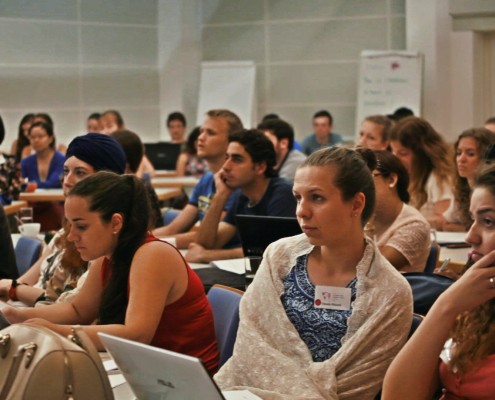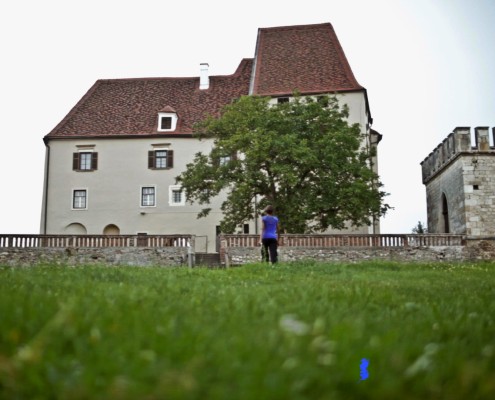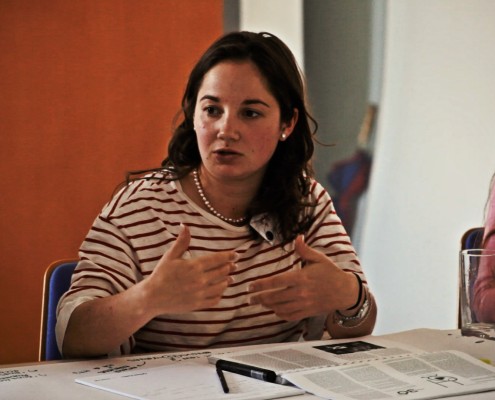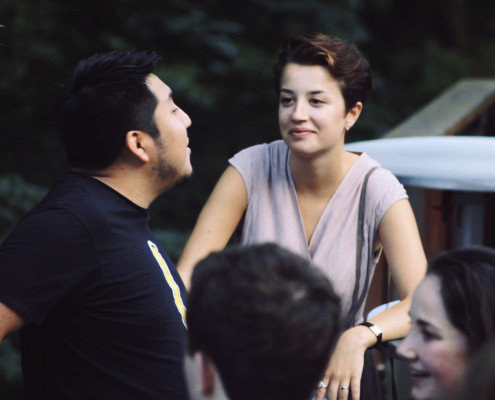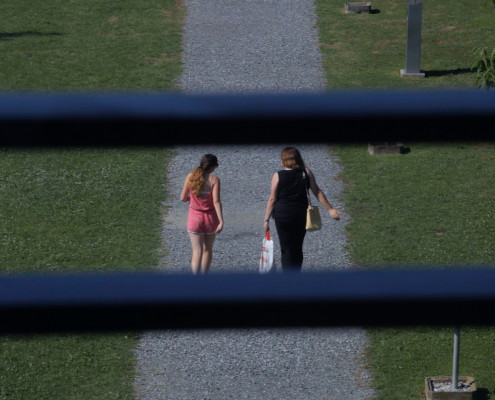Shifting Perspectives in the Context of Ageing, Communication, and Technologies at Graz International Summer School Seggau
By: Barbara Ratzenböck
Every year in July, more than 80 students and 10 professors from over 30 countries meet at the Graz International Summer School Seggau (GUSEGG) in Southern Styria, Austria to discuss global developments and challenges in areas such as society, politics, economics, religion, and culture. One aim of the summer school is to encourage participants to think outside the box and outside of their academic disciplines while engaging with new ideas. Students and professors gather in the 12th century Seggau Castle, which overlooks the town of Leibnitz, as they work together from dawn until dusk and ask questions about global phenomena. The summer school offers students insight into recent developments in research in specific subject areas and ageing is one among several topics. The summer school promotes shifts in perspective, from the big picture of current global events to disciplinary expert talk and back. Roberta Maierhofer (Center for Inter-American Studies of the University of Graz), the academic director of the summer school and a collaborator with the Ageing+Communication+Technologies (ACT) research network, has explained the summer school as something that is “built on the perspective of setting up interdisciplinary platforms in the morning lectures and in the afternoon lectures the students have the possibility of going into depth.”
As in previous years, students from all over the globe will participate in the summer school and ACT will award a number of ACT-affiliated students with scholarships to participate in the Ageing Studies Workshop – one of seven thematic afternoon workshops at GUSEGG. The Ageing Studies workshop offered at GUSEGG is a good example of a successful international collaboration within the ACT project consortium. It enables students who are interested in questions of age and ageing across disciplines and (research) cultures to exchange with each other and it also helps build a sustainable network of emerging scholars in the field. In addition to introducing students from all disciplines to current research with regard to ageing and communication technologies, it encourages students to share their own ideas and to come up with relevant (research) questions on the topic of ageing.
This July, the Ageing Studies workshop offered at Seggau will be led by ACT researchers Kim Sawchuk (Concordia University) and Line Grenier (Université de Montréal). It will focus on intersections between Ageing, Communication, and Technologies and how their interrelations can be re-thought. Sawchuk, who attended GUSEGG in 2015, highlighted the importance of “ask[ing] different questions than have been asked“ in the context of age and ageing. In this spirit, the 2016 Ageing Studies workshop at Seggau will invite students to “reflect on the possibilities of transgressing mainstream norms and expectations of age and ageing, discuss different cultures of ageing, and trace the contours of what we might call ‘digital ageism’ to shift our perspective on what it means to age in the here and now.“1
An important feature of GUSEGG is that outside-the-box thinking and shifts in perspective happen throughout the full duration of the two-week summer school and these shifts in perspective happen in an intercultural and interdisciplinary setting. Not only do students and professors spend intensive time working together in the classrooms, lunch breaks and recesses allow less formal but equally generative discussions to move outside the classroom, to the castle’s terraces and onto its lawn. Many important connections are made during breaks and between sessions. Thus, shifting perspectives is not only being practiced in academic terms, but can become very personal when participants exchange stories about their lives, their home countries, and their cultures. The basis for this comprehensive learning experience is the willingness of all participants – professors as well as students – to come together and share a space for a stretch of time, something which might sound very simple, but is not a given in our fast-paced times.
During last year’s edition of GUSEGG, Kim Sawchuk commented on the importance of being in one place and having time to think intensively: “we multitask and we do many things at once. In our digital era, we try to divide time more. I think [being at the summer school] is a really good reminder that you can benefit from being in one location, in one space together. [It creates] a kind of situation in which we are allowed to concentrate and do one thing at a time.” This focusing and slowing-down contributes to an intensive learning experience on both an academic and personal level. At the end of the two-week summer school, GUSEGG students often realize that having a good question to ask is more exciting than having an answer to give. Furthermore, that focusing and having time to let ideas filter through and sink in is a prerequisite for being able to come up with strong questions. This mindset has been termed “Seggau School of Thought” by summer school director Roberta Maierhofer.
—
Barbara (Babsi) Ratzenböck is a Ph.D. student from the University of Graz and a research assistant with the Center for Inter-American Studies. She is spending four months in Montreal as a visiting scholar with ACT. She is the assistant to the academic director of the Graz International Summer School Seggau, in Austria.

